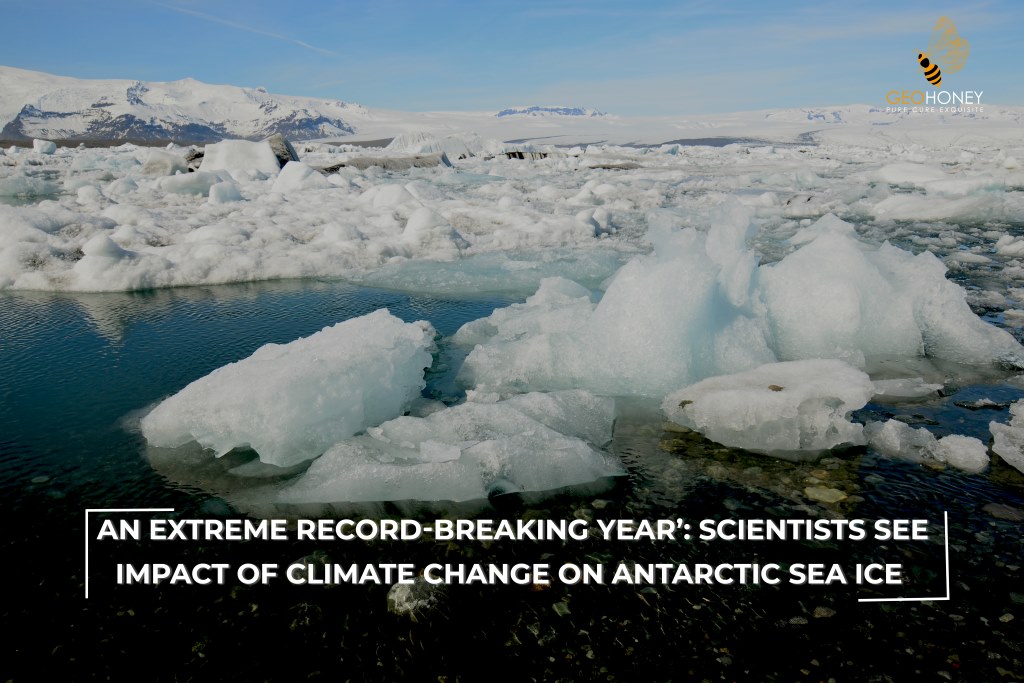- Tokyo: 10:33
- Singapore: 09:33
- Dubai: 05:33
- London: 01:33
- New York: 20:33
Scientists Observe Effects of Climate Change on Antarctic Sea Ice During an Unprecedented Year

As Antarctic winter sea ice shrinks by 1 million square kilometres, emissions reductions are urgently needed.
The Antarctic sea ice has reached record lows this winter, according to the US National Snow and Ice Data Centre (NSIDC).
The "extreme record-breaking year" adds to experts' concerns about the increasing impact of climate change at the southern pole.
Researchers warn that the shift might have disastrous effects for creatures such as penguins that breed and grow their young on sea ice.
In a vicious circle, it also hastens global warming by limiting the amount of sunlight reflected back into space by white ice.
How much ice has melted in Antarctica?
The 'extent' of Antarctic sea ice, defined as the total area of ocean containing sea ice at concentrations greater than 15%, peaked on September 10.
According to the NSIDC, it covered barely 16.96 million square kilometres at the time, the lowest winter maximum since satellite records began in 1979.
This is approximately 1 million square kilometres less ice than the previous winter record established in 1986.
"It's not just a record-breaking year; it's an extreme record-breaking year," says Walt Meier, senior scientist at the National Science Foundation.
The NSIDC stated in a statement that the figures were preliminary and that a comprehensive analysis would be presented next month.
In the Southern Hemisphere, seasons are reversed, with sea ice often peaking around September near the end of winter and later receding to its lowest point in February or March as summer comes to a conclusion.
In February, the summer Antarctic sea ice extent also reached a new low, exceeding the previous record established in 2022.
How does Antarctic sea ice loss compare to the Arctic's loss?
Over the last decade, the Arctic has been heavily struck by the climate crisis, with sea ice quickly diminishing as the northern area warms four times faster than the global average.
While climate change is causing glaciers in Antarctica to melt, it is unclear how rising temperatures are affecting sea ice near the southern pole. Between 2007 and 2016, the area of sea ice increased.
Scientists are concerned that the recent move towards record-low conditions indicates that climate change is finally manifesting itself in Antarctic sea ice.
While Meier emphasised that it is too early to speculate, an academic article published earlier this month in the journal Communications Earth and Environment mentioned climate change as a possible contributor.
The study discovered that rising ocean temperatures, primarily due to human-induced greenhouse gas emissions, are contributing to the recent decline in sea ice levels.
"The key message here is that we really need to reduce our greenhouse gas emissions to protect these frozen parts of the world that are really important for a whole bunch of reasons," says Ariaan Purich, a sea ice researcher at Australia's Monash University who co-authored the paper.
Source: euronews.com




Fleeting ecological advantage, sustained threat As glaciers melt, they add nutrients to the ocean and fertilize the local ecosystem. but there is still bad effect on the countries near this.